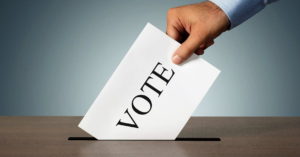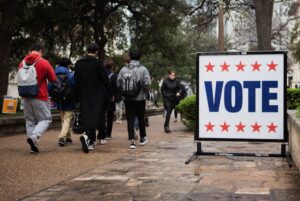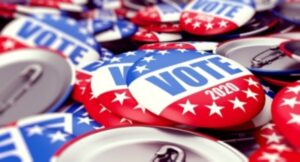
Every now and then you hear journalists say something like this: I don’t vote because doing so would compromise my ability to cover candidates fairly.
You even hear such things from public officials, namely those in the legal or law enforcement professions. They don’t vote because they want to be able to investigate wrongdoing without regard to whether they are investigating a politician they might have endorsed with their ballot.
I do not harbor such reticence. I have voted in every election since I became eligible to vote, which was, shall we say, a long time ago. I do so with pride. I take a great deal of interest in the political and electoral process.
I was a journalist for more than 37 years. I spent most of those years as an opinion writer and editor of opinion pages.
Not one time did I ever ponder whether my job interfered with my performing a basic act of good citizenship, which is voting for the candidates of my choice or deciding on the issues of the day.
During the years I wrote editorials for newspapers in Oregon and Texas, I authored endorsements for candidates who did not get my vote at the ballot box. I saw no conflict there.
Of course it helped that none of the newspapers where I wrote those editorials — one in Oregon and two in Texas — required me to put my name on the editorials. I wrote them on behalf of the newspaper and its editorial board, which usually comprised me, the publisher and at times the editorial page staff.
Did the issue of whether I should vote in elections ever come up? No. Publishers to whom I reported never raised the issue. Nor did the executive editor who was my supervisor in Beaumont, Texas. It was generally understood that we were free to exercise our right to vote.
Prior to becoming an opinion writer and editor, I did work as a general assignment reporter who covered city councils, school boards, county commissions as well as writing features — and the occasional investigative piece. The issue of who got my vote never came up. No sources ever asked it of me and I never brought it up to any of them; we do vote in secret, correct?
I view voting as a fundamental right. I exercised it with unbridled enthusiasm when I was working for a living.
Did it inhibit my ability to do my job? Not for a single instant!



